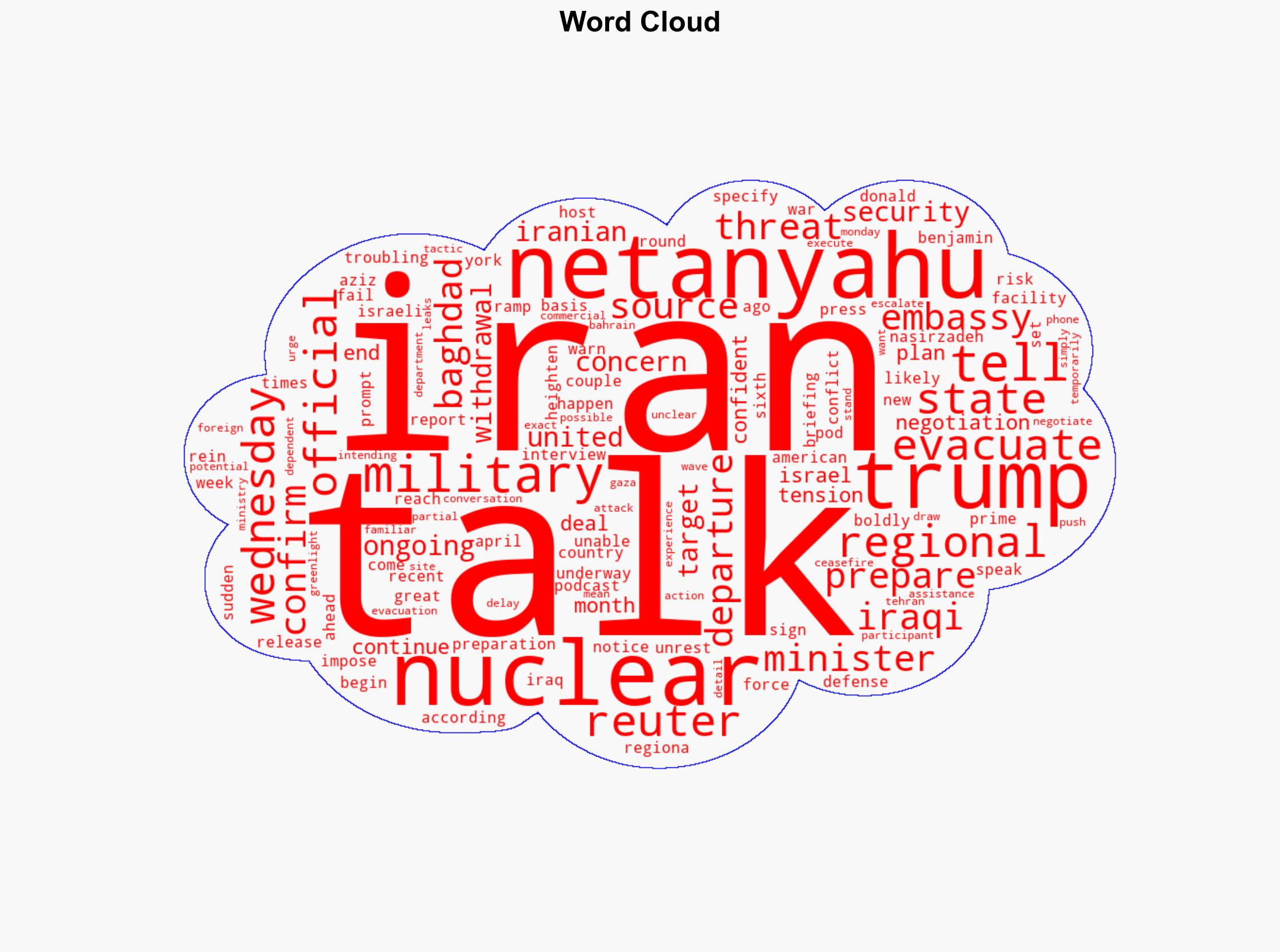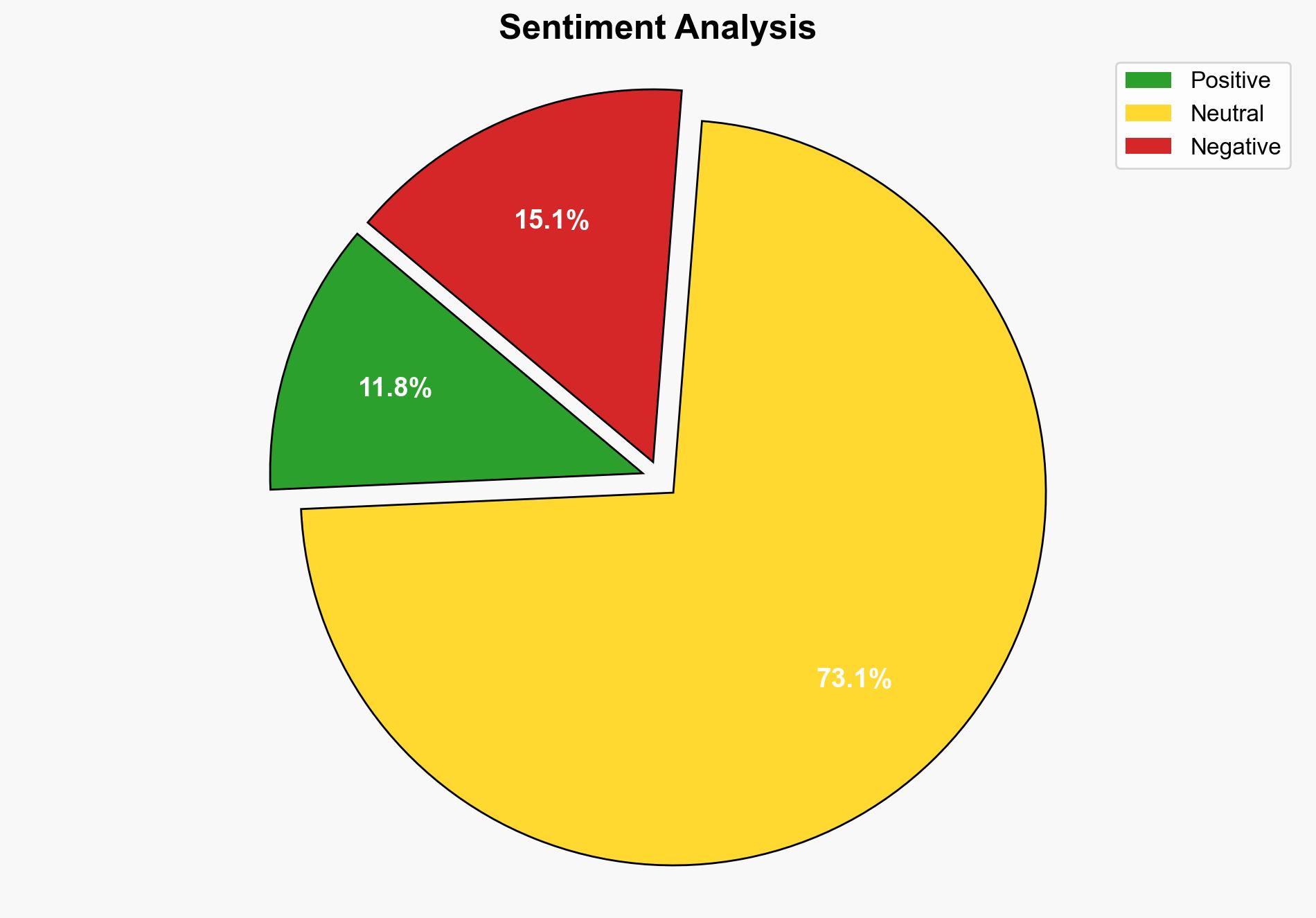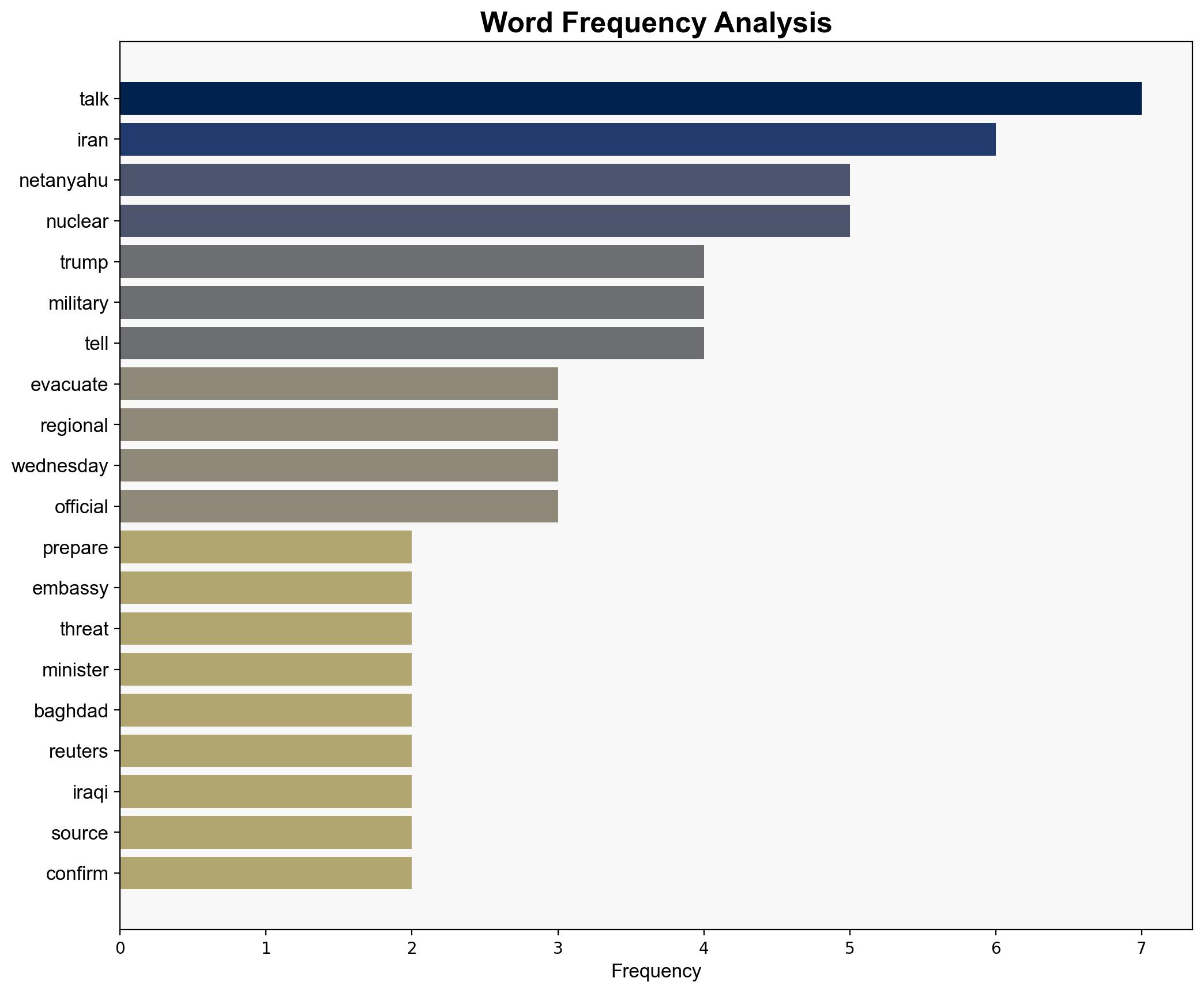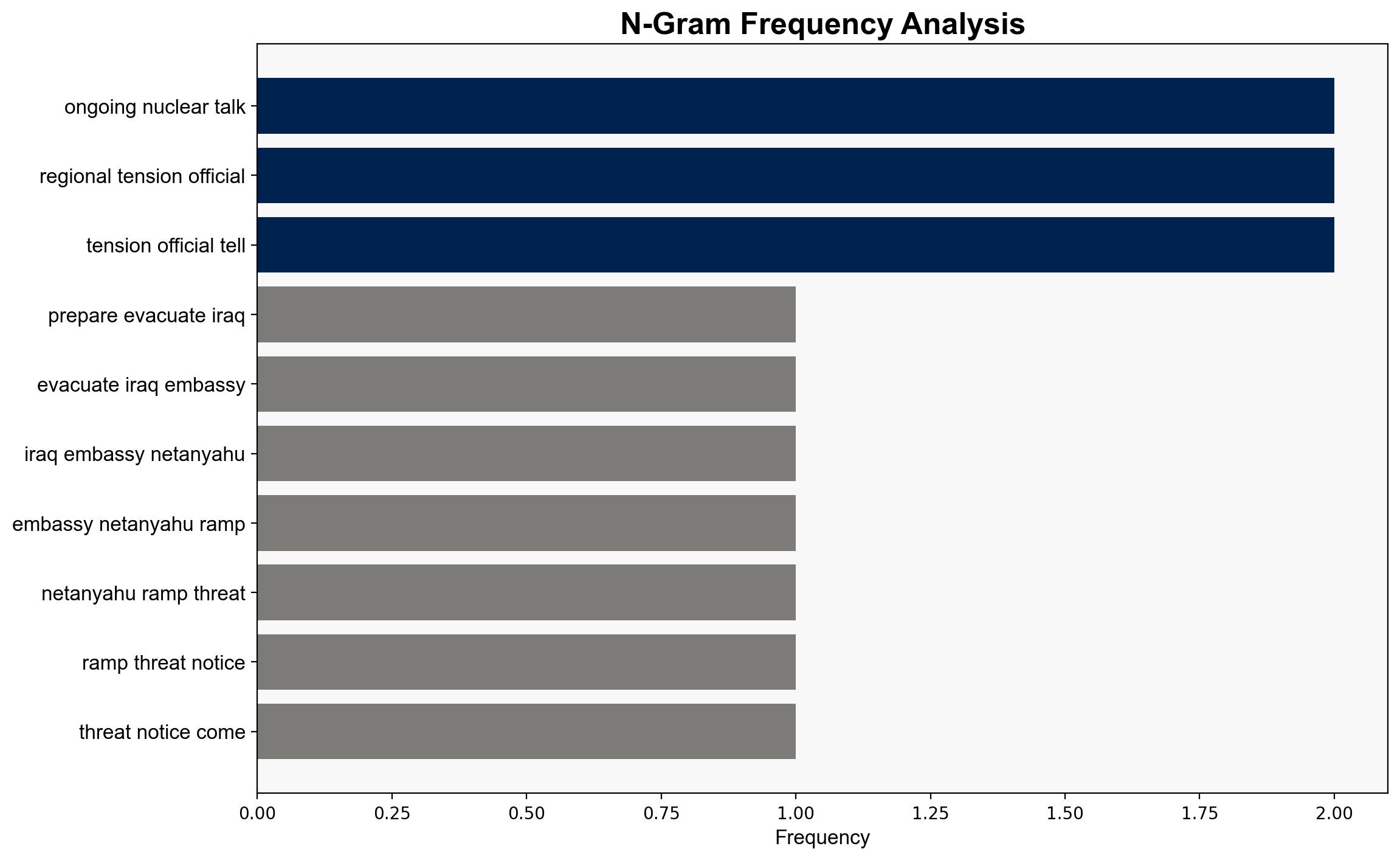US Prepares to Evacuate Iraq Embassy as Netanyahu Ramps Up Threats – The New Republic
Published on: 2025-06-11
Intelligence Report: US Prepares to Evacuate Iraq Embassy as Netanyahu Ramps Up Threats – The New Republic
1. BLUF (Bottom Line Up Front)
The United States is preparing to evacuate its embassy in Baghdad amid escalating threats from Benjamin Netanyahu towards Iran. This development signals heightened regional tensions and potential conflict, particularly concerning Iran’s nuclear program. Immediate strategic considerations include securing diplomatic personnel and reassessing regional military postures.
2. Detailed Analysis
The following structured analytic techniques have been applied to ensure methodological consistency:
Causal Layered Analysis (CLA)
Surface events indicate increased threats from Israel towards Iran, prompting US evacuation plans. Systemic structures reveal a fragile geopolitical balance exacerbated by stalled nuclear negotiations. Worldviews reflect a persistent distrust between Iran and Western powers. Myths perpetuate the narrative of inevitable conflict over nuclear capabilities.
Cross-Impact Simulation
The potential evacuation could destabilize US-Iraq relations, embolden Iranian hardliners, and increase regional volatility. Neighboring states may face refugee influxes or economic disruptions, while global oil markets could experience price fluctuations.
Scenario Generation
– Best Case: Diplomatic efforts resume, leading to de-escalation and renewed negotiations.
– Worst Case: Military conflict erupts, involving multiple regional actors and disrupting global trade.
– Most Likely: Prolonged diplomatic stalemate with intermittent skirmishes and continued regional instability.
3. Implications and Strategic Risks
The evacuation underscores vulnerabilities in diplomatic security and the potential for rapid escalation into military conflict. Cyber threats may target critical infrastructure, while economic sanctions could further strain regional economies. Cross-domain risks include potential cyberattacks linked to geopolitical tensions.
4. Recommendations and Outlook
- Enhance security protocols for diplomatic missions in volatile regions.
- Facilitate back-channel communications to de-escalate tensions and resume negotiations.
- Prepare contingency plans for regional conflict scenarios, including humanitarian aid and economic support mechanisms.
- Scenario-based projections suggest prioritizing diplomatic engagement to prevent worst-case outcomes.
5. Key Individuals and Entities
– Benjamin Netanyahu
– Donald Trump
– Aziz Nasirzadeh
6. Thematic Tags
national security threats, cybersecurity, counter-terrorism, regional focus





